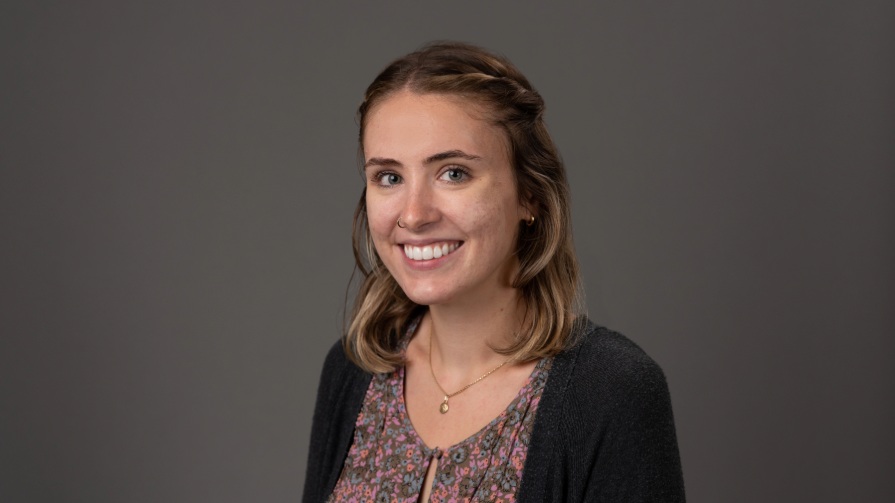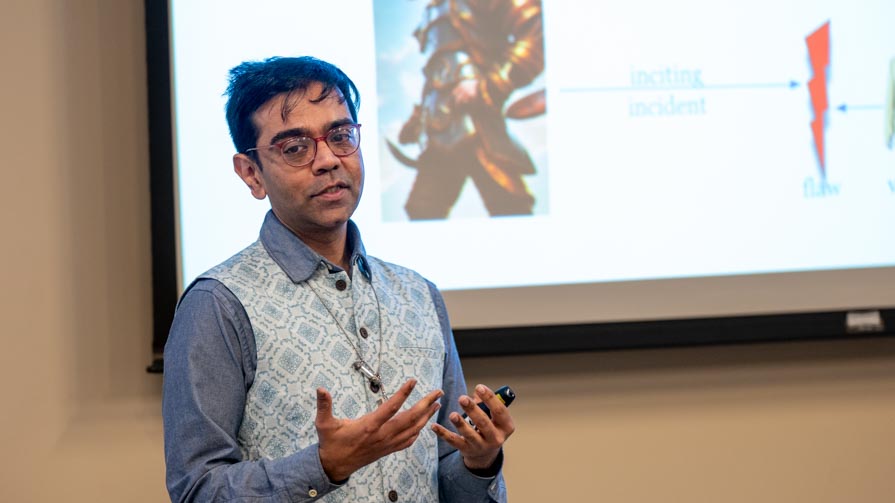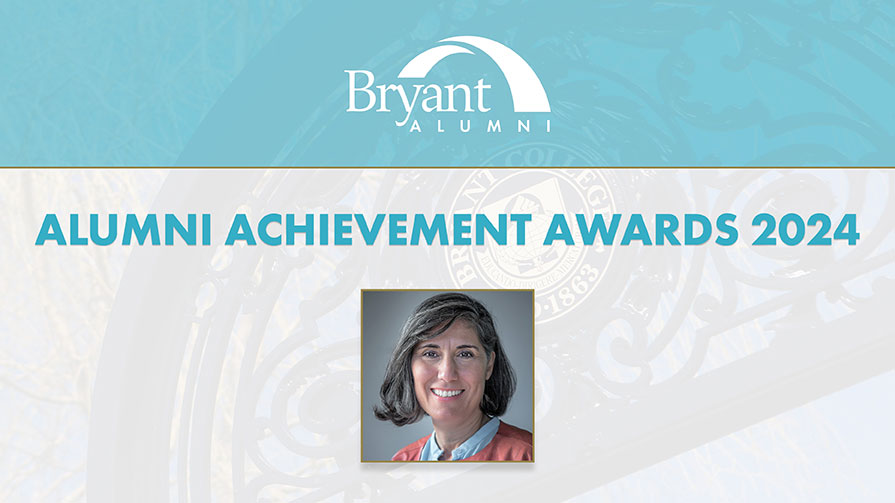Bryant faculty engage in an academic tradition known as sabbatical. During that time – often for one semester, sometimes for one year – faculty can devote themselves entirely to a new or ongoing project without the daily rigor and responsibilities of teaching a slate of courses. Designed to benefit their field and their students, sabbaticals allow Bryant faculty to catch up on — and contribute to — their fields of knowledge, resulting in findings they then use in the classroom to educate and inspire.
During their sabbatical, our faculty engage in a range of scholarly activities: gathering data for a research project, authoring scholarly books and articles, writing and editing college textbooks, and more. And with Bryant’s focus on learning experiences and outcomes, our faculty often pursue goals during their sabbatical that enhance their teaching abilities, including developing new pedagogies and new teaching cases.
Faculty often pursue goals during their sabbatical that enhance their teaching abilities, including developing new pedagogies and new teaching cases.
Bryant faculty often pursue multiple projects during sabbatical. Here’s a select list of projects pursued by faculty who were on sabbatical during the 2017-2018 academic year.
- Sharmin Attaran, Ph.D., Associate Professor of Marketing, published four articles on predictive and embedded analytics in digital marketing. At a time where “predictive analytics deployments are gaining momentum” and “traditional business analytics are undergoing major changes,” two of her articles, published in the International Journal of Business Intelligence Research, propose a conceptual model for successful implementation of predictive analytics and embedded analytics in organizations.
- Kristen Berkos, Ph.D., Associate Professor of Communication, had previously developed learning outcomes in communication (LOCs) for the National Communication Association, a leading professional organization supporting the teaching and research of the communication discipline. During her sabbatical, she extended this work by presenting on the use of capstone portfolios to measure progress toward LOCs at the International Communication Association’s annual conference in Prague.
- Nicole Freiner, Ph.D., Associate Professor of History and Social Sciences, performed field research in Japan for her book, Rice and Agricultural Policy in Japan: The Loss of a Traditional Lifestyle (Springer), to be published in October. The research has, until now, focused on national-level institutions and dynamics. Her research contributes significantly to the existing literature, as she adds the perspectives of farmers and consumers, who are the recipients of policies. Hers is the first large-scale study of policies from the consumer/farmer perspective and the first to provide in-depth information on Japan's agricultural cooperatives.
- Martha Kuhlman, Ph.D., Professor of English and Cultural Studies, edited a manuscript currently titled Comics of the New Europe; worked on the translation of a Czech graphic novel, which she’ll submit for a translation grant from the Czech Republic; and held an art exhibit entitled "Kafka Komix," a reimagining of the novel Metamorphosis by Franz Kafka into a series of 25 panel collages created by Kuhlman and 50 mini-comics created by other invited artists and friends.
- Eileen Kwesiga, Ph.D., Professor of Management, traveled to Africa and Europe to pursue multiple research projects on African Indigenous Knowledge Systems (AIKS) in management (an under-researched topic) and the impact of economic development tensions on management systems. In one component of her work, she studied several indigenous entrepreneurial communities and formed collaborations with scholars in multiple countries. One study was published in the Journal of Business Ethics, and she was invited to be a panelist at conference sponsored by UN Emerge in Geneva, Switzerland, in September 2018.
- Within the context of controversy surrounding athletes “taking a knee” as a form of social activism, Judith McDonnell, Ph.D., Professor of History and Social Sciences and Sports Studies Concentration Coordinator, pursued a project that seeks to analyze factors that encourage, discouraging or prevent college women athletes from participating in “social activism.” The project also explores the relationship between an athletic identity and activist identity, and extends her research interests in gender, inequality and identity.
- Michael A. Roberto, D.B.A., Trustee Professor of Management, worked on a new book on creativity in organizations, tentatively titled Igniting Creativity: Dismantling Barriers to New Ideas (John Wiley & Sons) to be published in December. He also worked on a new version of the award-winning and best-selling Everest Leadership and Team simulation (created with Harvard Professor Amy Edmondson, Harvard Business Publishing, and Forio Business Simulations) and a new version of the Columbia’s Final Mission multi-media case study he initially authored in 2005. In addition, he co-authored two peer-reviewed articles on student learning with fellow Bryant faculty Peter Nigro and Dave Ketcham, and he co-authored a peer-reviewed journal article on design thinking with Bryant faculty member and Director of the IDEA Program Allison Butler, Ph.D.






